-
Shipping Containers
- Container Parts
- Roof Panel
- Side Panel
- Front End Panel
- Door Panel
- Front Corner Post
- Rear Corner Post (Outer/Inner)
- Cross Member
- Bottom Side Rail
- Top Side Rail
- Door Sill
- Front Bottom Rail
- Top End Rail
- Door Header Upper/Lower
- Door Rail
- Floor Spacer
- Angle
- Top/Bottom End Rail
- Door Edge Member
- Door Sealing
- Door Frame Profile
- Door Lining
- Door Hardwares
- Door Gasket
- Side Panel/Lining
- T-Floor
- Roof Panel/Lining
- Cross Member
- Bottom Side Rail
- Top Side Rail
- Ledge PVC
- Kazoo Drain
- Auto Drain
- Alu Tube
- Auto Drain Center Part
- PVC Drain Pipe
- PVC Plugs f. Drain with Ring and Steel Wire
- Door Screw
- Door Screw Nut
- Door Screw Rubber
- Tapping Screw
- Stainless Blind Rivet
- Lashing Ring
- CSC Plate
- Welding Wire
- Tapping Screw Bit
- Vehicle Parts
- Ship Supplies
- 00. Provisions
- 11. Welfare Items
- 15. Cloth & Linen Products
- 17. Tableware & Galley Utensils
- 19. Clothing
- 21. Rope & Hawsers
- 23. Rigging Equipment & General Deck Items
- 27. Painting Equipment
- 31. Safety Protective Gear
- 33. Safety Equipment
- 35. Hose & Couplings
- 37. Nautical Equipment
- 39. Medicine
- 45. Petroleum Products
- 47. Stationery
- 49. Hardware
- 51. Brushes & Mats
- 55. Cleaning Material & Chemicals
- 59. Pneumatic & Electrical Tools
- 61. Hand Tools
- 63. Cutting Tools
- 65. Measuring Tools
- 69. Screws & Nuts
- 75. Valves & Cocks
- 77. Bearings
- 79. Electrical Equipment
- 81. Packing & Jointing
- 85. Welding Equipment
- 87. Machinery Equipment
- Vehicles
- Lashing Tools
- Logistics Tools
ContainersCommon Knowledge About Shipping ContainersAug 20,2024With the rapid development of shipping container transportation, various types of containers have been designed to meet the diverse needs of different cargo types. The most commonly used shipping containers include general-purpose containers, refrigerated containers, open-top containers, hanger containers, frame containers, and tank containers. While other specialized containers, such as livestock, bulk powder, and ventilated containers, also exist, this summary will focus on the most prevalent types.
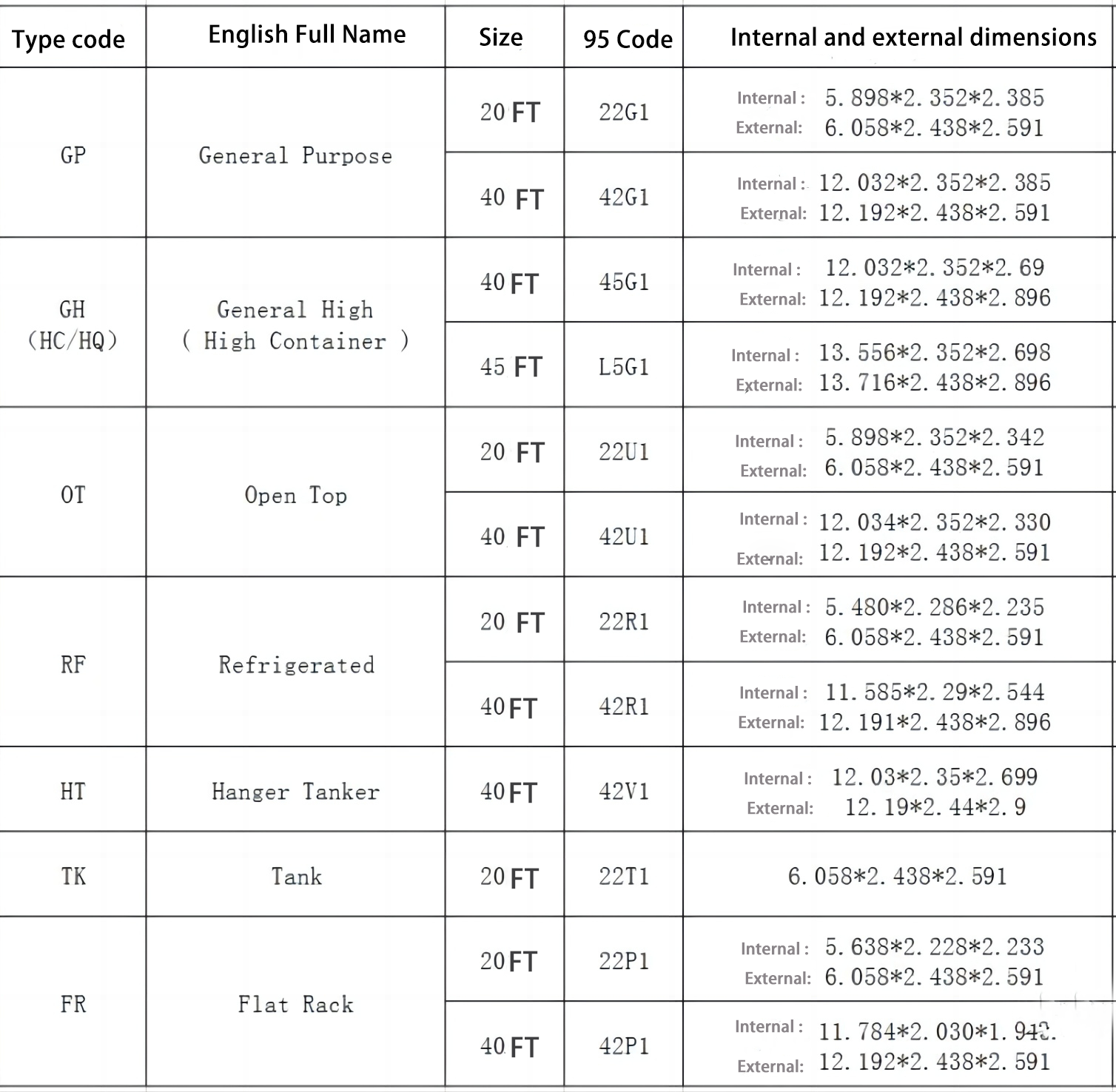 Common Container Sizes
Common Container Sizes
1.20-foot container: Standard size.
Overview of Container Types
2.40-foot container: Larger capacity.
1.General-Purpose Container Also known as a dry container, this fully enclosed container features a rigid top, sides, bottom, and doors. It’s primarily used for transporting piece goods like cultural supplies, daily necessities, textiles, electronics, and more. Accounting for 70-80% of all containers, these are suitable for most goods except frozen items, live animals, and plants.
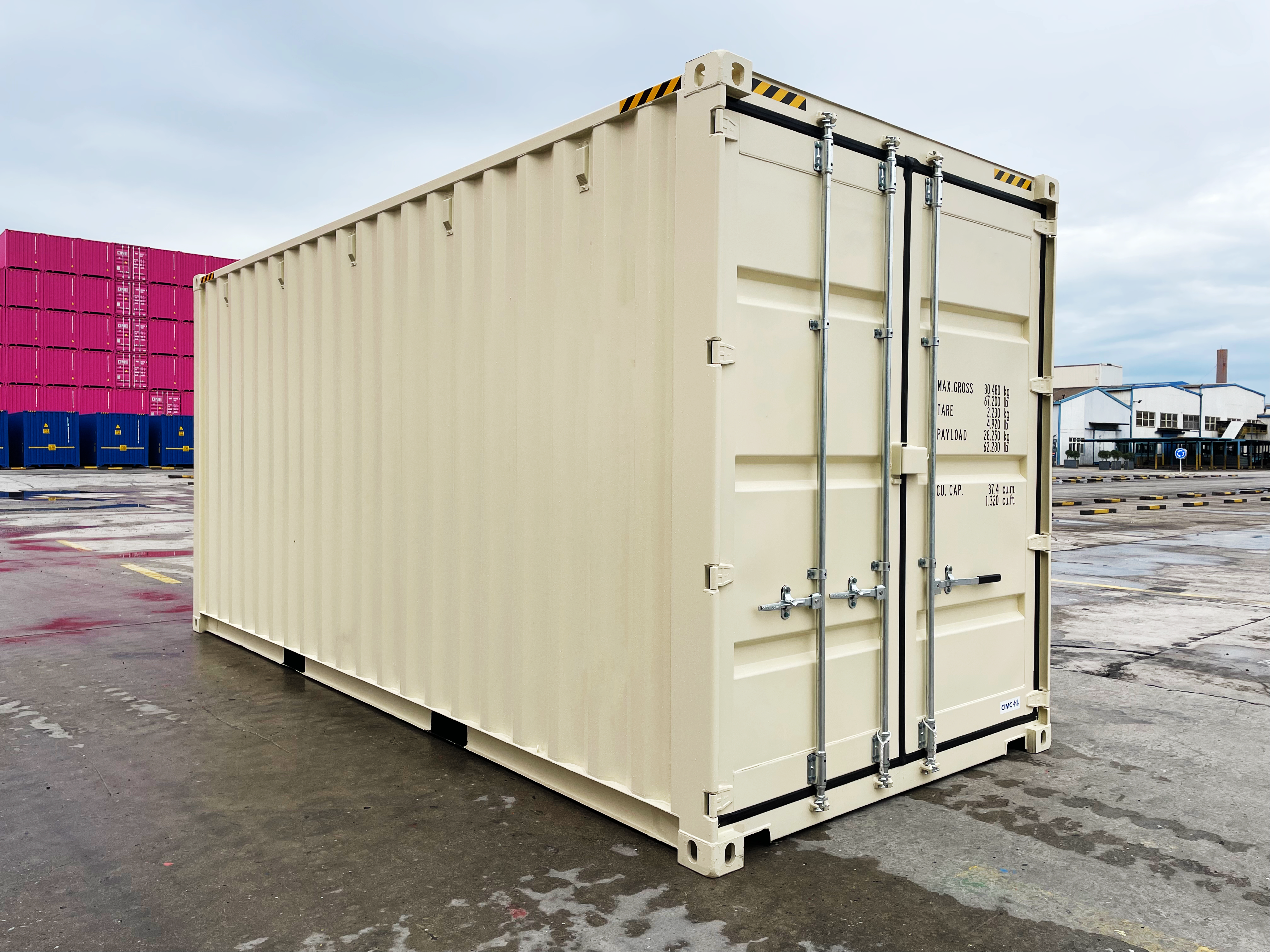 2.Open-Top Container Referred to as OT containers, these lack a rigid top but have a canopy made from materials like canvas or plastic. Goods can be loaded and unloaded from the top using a crane, making them ideal for heavy items like glass, steel, and machinery. The waterproof covering ensures the same watertight standards as general-purpose containers.
2.Open-Top Container Referred to as OT containers, these lack a rigid top but have a canopy made from materials like canvas or plastic. Goods can be loaded and unloaded from the top using a crane, making them ideal for heavy items like glass, steel, and machinery. The waterproof covering ensures the same watertight standards as general-purpose containers.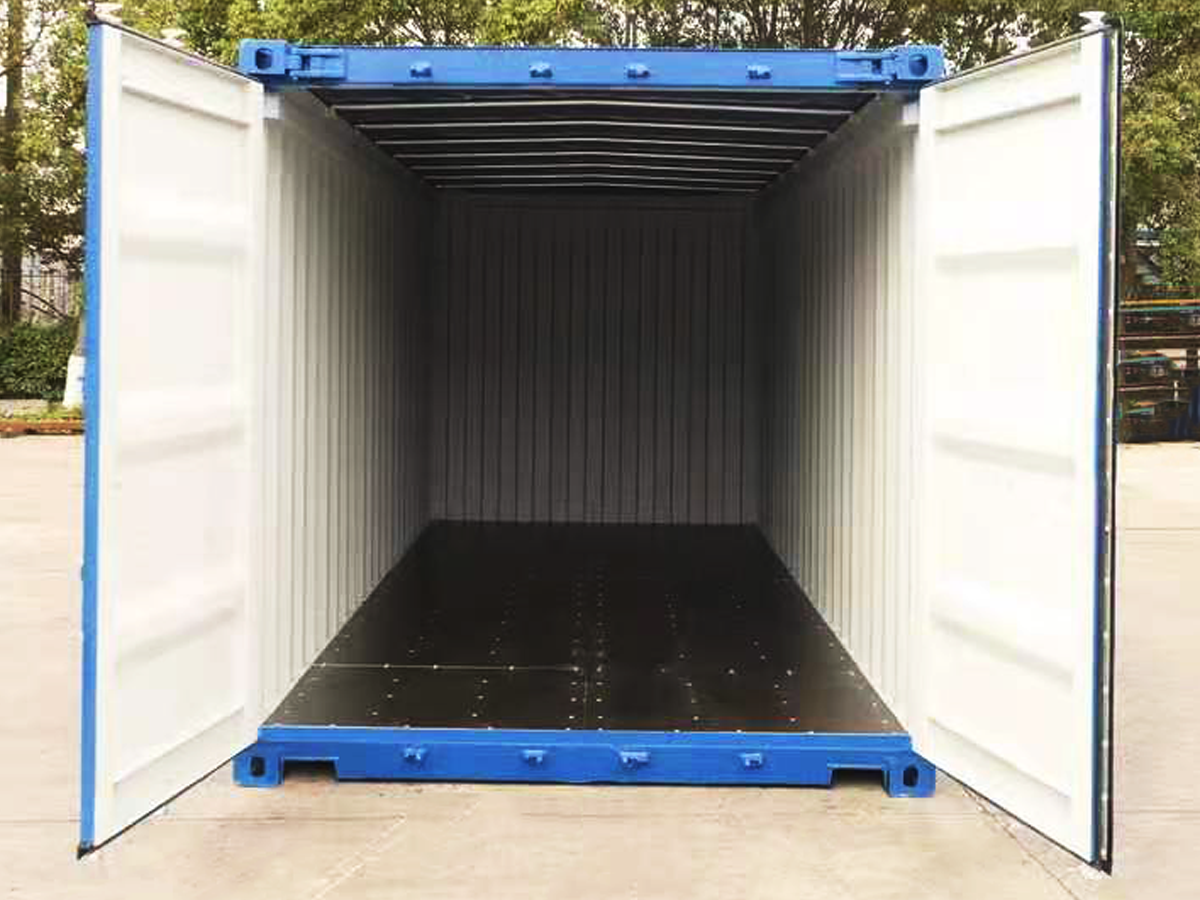 3.Refrigerated Container Also known as Reefer containers, these are designed for temperature-sensitive goods. They can maintain temperatures between 60degrees Celsius below zero to +30 degrees Celsius and are essential for transporting perishables like butter, chocolate, and frozen fish.
3.Refrigerated Container Also known as Reefer containers, these are designed for temperature-sensitive goods. They can maintain temperatures between 60degrees Celsius below zero to +30 degrees Celsius and are essential for transporting perishables like butter, chocolate, and frozen fish.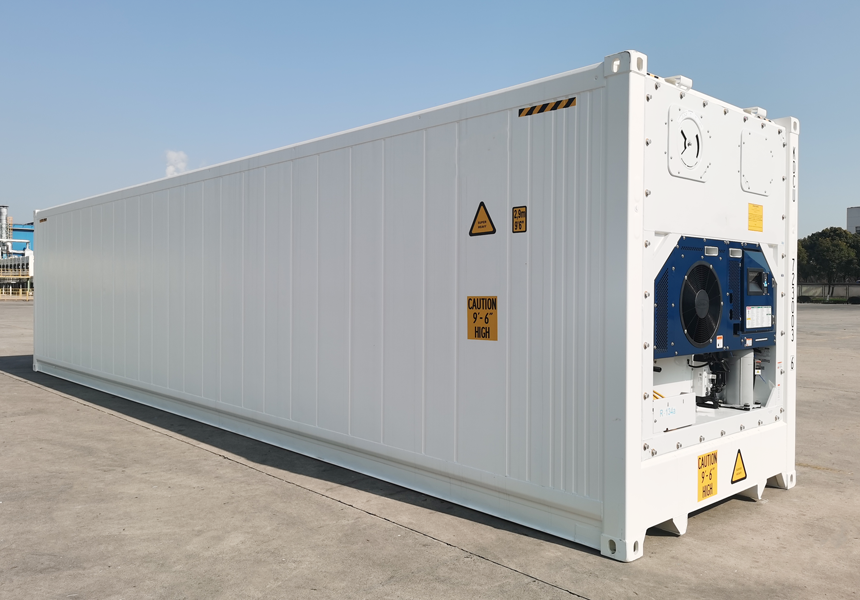 4.Hanger Container Abbreviated as HT containers, these are used for transporting clothing products that are prone to wrinkling. They feature steel rods or mesh for hanging garments and often have inner linings to prevent moisture damage.
4.Hanger Container Abbreviated as HT containers, these are used for transporting clothing products that are prone to wrinkling. They feature steel rods or mesh for hanging garments and often have inner linings to prevent moisture damage.
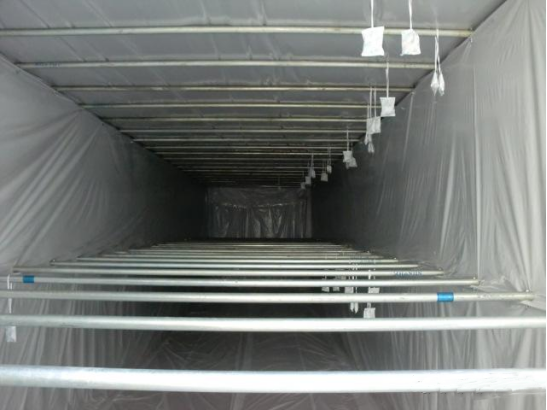
5.Tank Container TK containers are specialized for liquid goods such as wine, oil, and chemicals. These containers have a stainless steel tank within a metal frame and often come with heating devices and safety features for handling fluids.
6.Flat Rack Container Known as FR containers, these have no top or side walls, making them ideal for oversized cargo. They’re commonly used for large machinery, construction materials, and goods that don’t require additional packaging.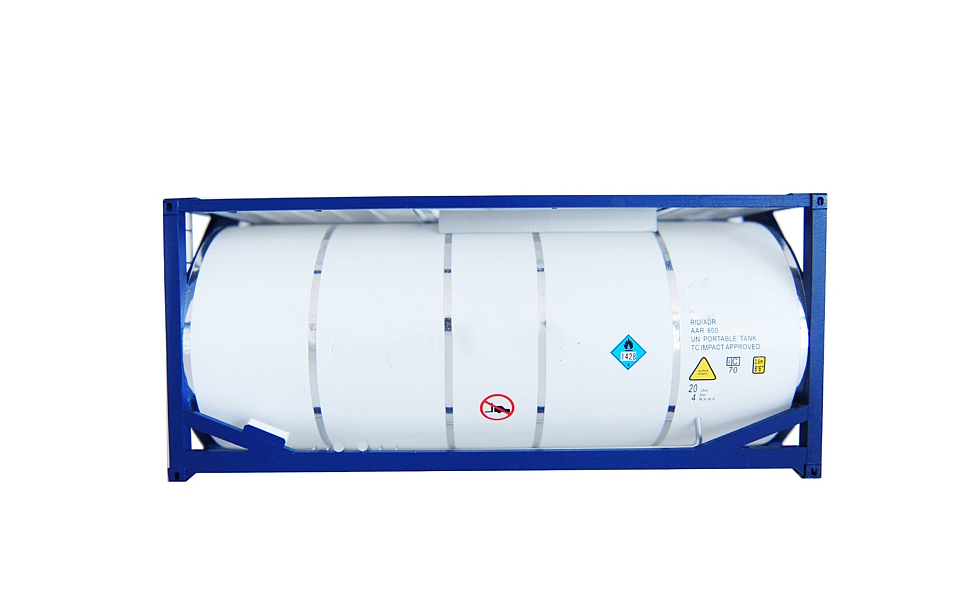
Identifying Shipping Containers Through Door Information
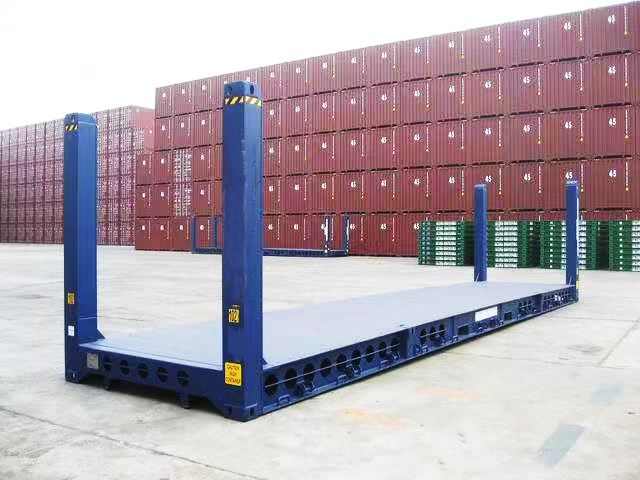
Shipping container doors contain essential information:
1.Classification Society Regulations: Ensures compliance with international safety standards.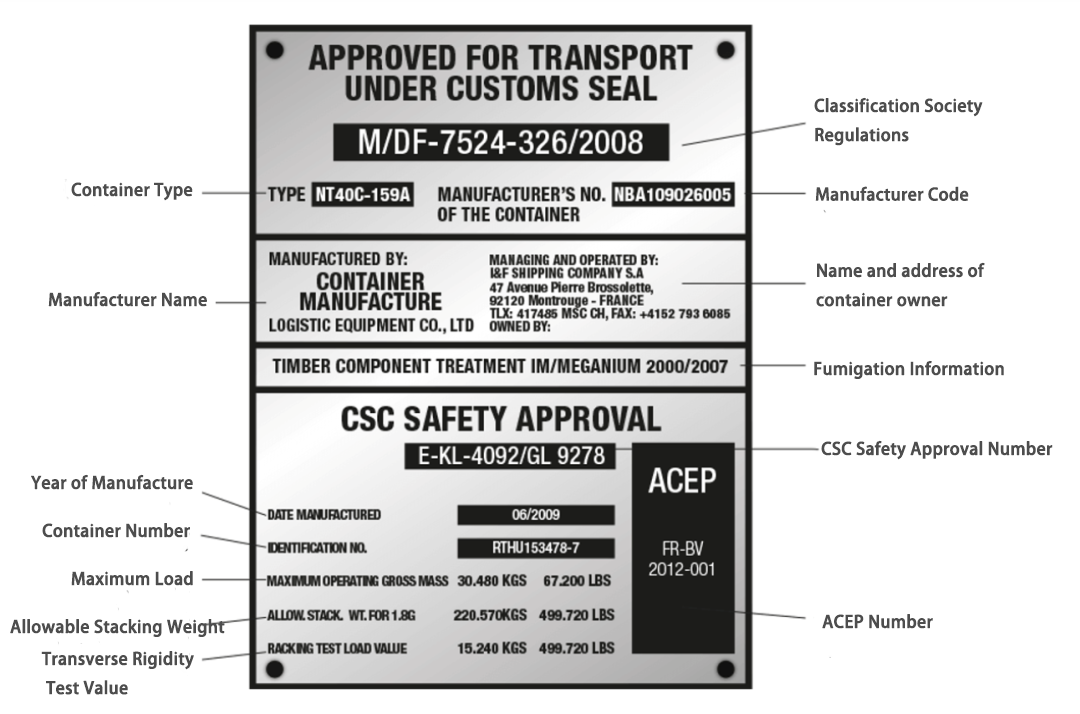
2.Container Type: Specifies the container’s purpose.
3.Manufacturer Code & Name: Identifies the container’s producer.
4.Fumigation Information: Indicates if the container has been fumigated.
5.CSC Safety Approval Number: A unique number ensuring the container meets safety standards.
6.Year of Manufacture: Indicates when the container was made.
7.Container Number: A unique identifier for the container.
8.Maximum Load & Allowable Stacking Weight: Specifies the weight limits for cargo and stacking.
9.Transverse Rigidity Test Value: Measures the container’s stability under pressure.
10.ACEP Number: Part of the Automated Container Inspection Program.
The CSC mark must be securely bolted to the container door and the container must be in good condition. Any damage invalidates the CSC mark, necessitating immediate repairs.
CIMC Intermodal Equilink Co., Ltd. (“CIMC Equilink”), with strong backing from CIMC Group, specializes in providing container spare parts, new and used containers, vehicles, vehicle parts, and other logistics tools. Over the years, we've built lasting relationships with clients and suppliers, earning a solid reputation in the industry. For inquiries, please contact us at info.equilink@cimc.com or request a quick quote—we’re honored to assist you.Quick Quote
Copyright © 2019 CIMC Equilink - Container Parts

 中文
中文















